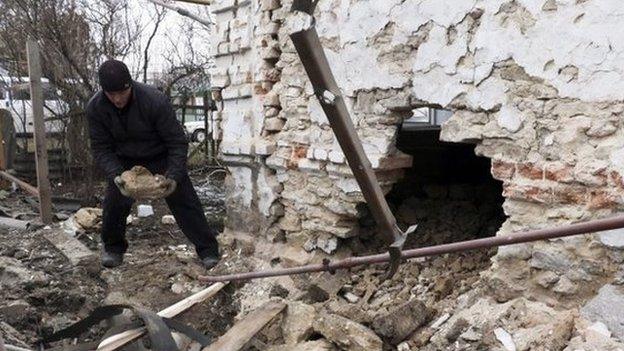Nato condemns Putin's nuclear 'sabre-rattling'
- Published
Jens Stoltenberg: "This nuclear sabre-rattling of Russia is unjustified, it's destabilising and it's dangerous"
Nato has condemned Russia's move to strengthen its nuclear arsenal, saying it amounted to "nuclear sabre-rattling" and was "unjustified" and "dangerous".
President Vladimir Putin said Russia would put more than 40 new intercontinental ballistic missiles into service this year.
It is part of a wide-reaching programme to modernise the country's military.
The move comes after the US proposed increasing its military presence in Nato states in Eastern Europe.
Tensions are high over Russia's role in the conflict in eastern Ukraine.
Nato Secretary-General Jens Stoltenberg said that the statement from Mr Putin was "confirming the pattern and behaviour of Russia over a period of time - we have seen Russia is investing more in defence in general and in its nuclear capability in particular".
He said: "This nuclear sabre-rattling of Russia is unjustified, it's destabilising and it's dangerous.
"This is something which we are addressing and it's also one of the reasons why we now are increasing the readiness and the preparedness of our forces."
He added that "what Nato now does in the eastern part of the alliance is something that is proportionate, that is defensive and that is fully in line with our international commitments".
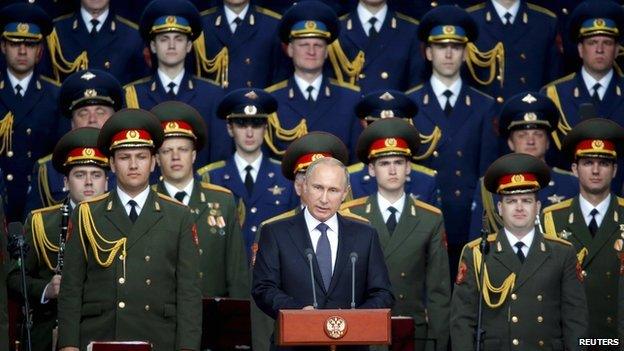
Russia has increased its defence spending substantially under Vladimir Putin
US Secretary of State John Kerry also expressed concern over President Putin's announcement, saying the decision was in contravention of the Start agreement designed to destroy nuclear weapons in the former territories of the Soviet Union.
"It could well be posturing with respect to negotiations because of their concerns about military moves being made by Nato itself," he said.
But "nobody should hear that kind of announcement from the leader of a powerful country and not be concerned about what the implications are," he added.
Following Mr Stoltenberg's comments, Mr Putin said that Russia would be forced to aim its armed forces at any countries that might threaten it.
Advanced weapons
Earlier, Mr Putin said the weapons would be able to overcome even the most technically advanced anti-missile defence systems.
Nato and Western leaders accuse Russia of sending soldiers and heavy weapons, including tanks and missiles, to the pro-Russian separatists in eastern Ukraine.
Russia has repeatedly denied this, insisting that any Russians fighting there are "volunteers".
Russia has increased its defence spending substantially under Vladimir Putin, and is in the midst of a massive modernisation programme, says the BBC's Sarah Rainsford in Moscow.
The missiles are hi-tech replacements, not additions to Russia's nuclear arsenal, but the nod to the US is clear, our correspondent says.

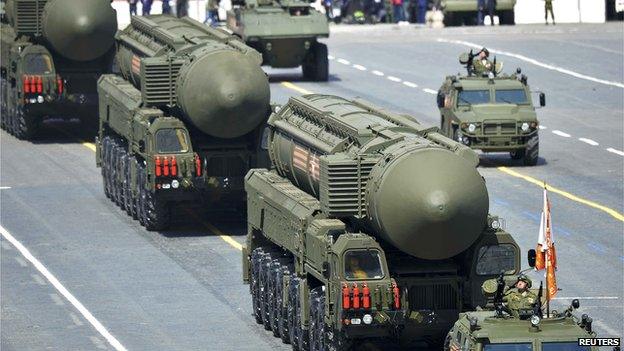
Russia nuclear arsenal
Military stockpile of approximately 4,500 nuclear warheads
These include nearly 1,800 strategic warheads deployed on missiles and at bomber bases
Another 700 strategic warheads are in storage along with roughly 2,700 non-strategic warheads
A large number - perhaps 3,500 - of retired, but still largely intact warheads await dismanting
All numbers are approximate estimates
Source: Federation of American Scientists

- Published16 June 2015
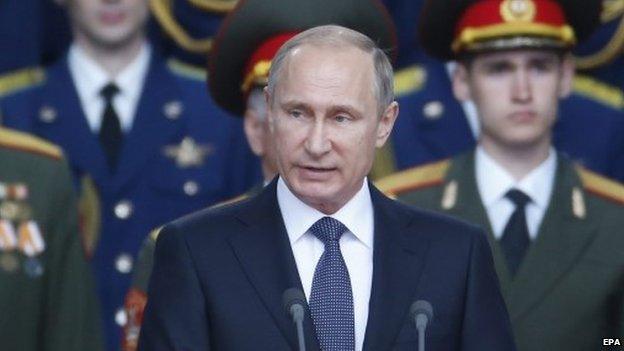
- Published15 June 2015
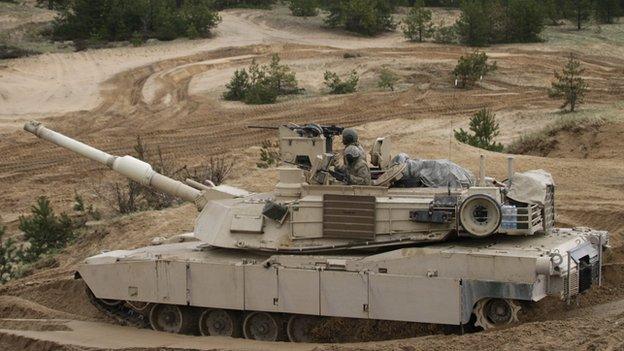
- Published17 April 2015
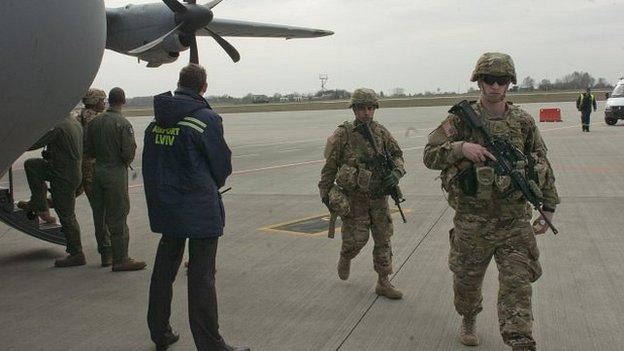
- Published6 April 2015
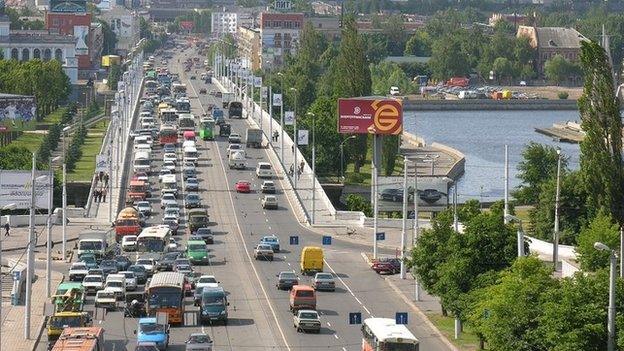
- Published5 March 2015
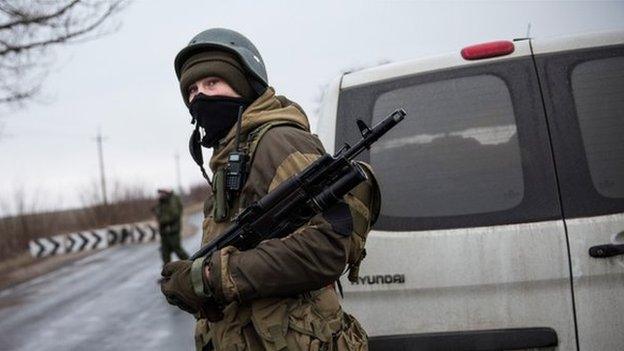
- Published5 February 2015
